Late 2017 conference
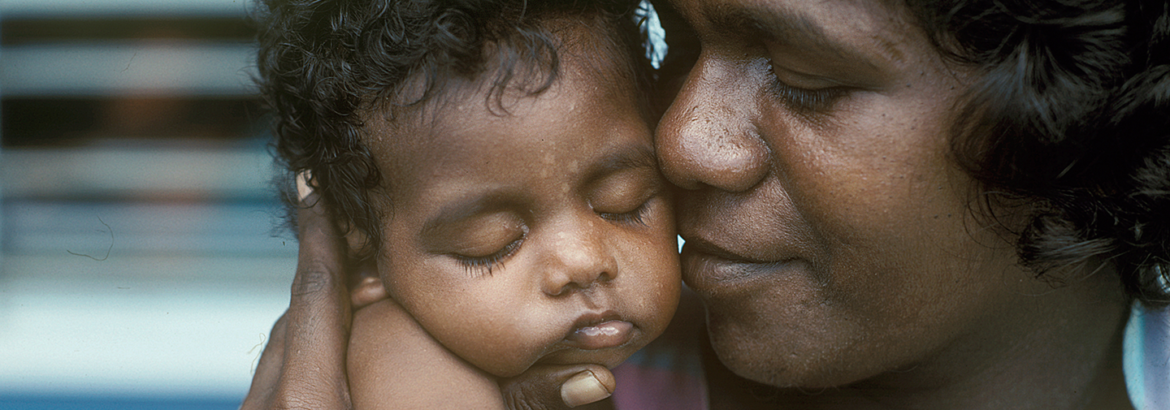
Breastfeedingin a changing world
September - December, 2017
Our 11th online breastfeeding conference
Photo credit: Heide Smith. Used with permission.
Breastfeeding in a changing world, our 11th online breastfeeding conference in English covered topics such as at-breast supplementation, using social media to increase breastfeeding rates, breastfeeding for pain reduction, milk expression, breastfeeding and obesity, improving breastfeeding self-efficacy, breastfeeding for working mothers, the importance of community-based peer support and much more! This was held online from September to December 2017. The conference is now closed and the presentations are no longer available. You can still read the topic introductions and more background about the speakers. Thank you for your interest!
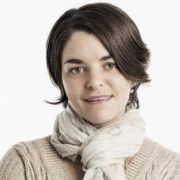
Poor weight gain: assessment and the use of at-breast supplementation
Mariana Colmenares Castaño, MD, IBCLC - Read morePoor weight gain: assessment and the use of at-breast supplementation
Mariana Colmenares Castaño, MD, IBCLC
Mariana Colmenares Castaño was born in Mexico City, and from an early age she was fascinated by animals and nature. She studied medicine at the National University of Mexico (UNAM), and found her passion as a pediatrician doing her residency at the National Pediatric Institute. With the birth of her first child, Mariana witnessed the lack of knowledge and commitment with breastfeeding and nutrition within the medical profession. This was her impetus to specialize in breastfeeding medicine. Certified as a Lactation Consultant (IBCLC) in 2011 by the International Board of Lactation Consultant Examiners (IBLCE), she is currently a member of the International Lactation Consultant Association, the Academy of Breastfeeding Medicine and a proud founding member of the National Lactation Consultant Association of Mexico (ACCLAM), where she serves on the Board of Directors as Education Coordinator. As part of her continuing professional training she studied at the International Breastfeeding Clinic, in Toronto CA with Dr Jack Newman.
Mariana is a member of the team for Breastfeeding Country Index BFCI, a project from Yale University and Universidad Iberoamericana whose goal is to develop an evidence base metric that can help decision-makers to understand the current status to elevate breastfeeding programs and increase breastfeeding rates. A frequent speaker at national and international conferences, she has published numerous articles and co-authored a chapter for the National Academy of Medicine. To contribute to a medical profession better prepared to support breastfeeding, she teaches medical students, and serves as a consultant for the National Health Institute and UNICEF.
Poor weight gain: assessment and the use of at-breast supplementation
Sometimes breastfeeding does not go as mother, family and health professional expect. It is very important to recognize and assess an infant with poor weight gain, as early stunting may have a negative impact on subsequent development. We can counsel and encourage mothers to continue breastfeeding, through “breastfeeding” with the use of a lactation aid. This talk focuses on recognizing the benefits of “at breast” supplementation in different clinical settings, and demonstrates ways to use this approach as a tool for overcoming poor weight gain.
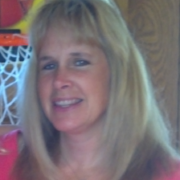
Engaging generation Y using social media to increase breastfeeding rates through cell phones, texting & YouTube
Meg Beard, MPH, MCHES, RDN, IBCLC - Read moreEngaging generation Y using social media to increase breastfeeding rates through cell phones, texting & YouTube
Meg Beard, MPH, MCHES, RDN, IBCLC
Meg Beard has been the breastfeeding coordinator for Santa Barbara County WIC in California, USA for the last 19 years and chairs and writes grants for the Santa Barbara County Breastfeeding Coalition. Santa Barbara County WIC has some of the highest breastfeeding rates in the state of California. WIC’s caseload is 18,420 with five, International Board Certified Lactation Consultants (IBCLCs), 25 Lactation Educators, and two full-time Breastfeeding Peer Counselors. Santa Barbara County was one of the first agencies to generate new revenue for IBCLC visits. The recipient of the California state WIC “Best Practice Award” in 2003 and 2009. In June of 2013, Santa Barbara County was the recipient of the International Board of Lactation Consultant Examiners (IBLCE) and International Lactation Consultant Association (ILCA) community award for excellence and innovation in lactation care. She was awarded the County employee of the month in November, 2014 by the Board of Supervisors of Santa Barbara County and published an article in Clinical Lactation, December, 2014. Breastfeeding is a Public Health and Social Justice issue. Meg Beard resides in Santa Barbara, California with her husband and two children who were each breastfed for three years. She enjoys sleeping, movies, working out, reading, and making creative snacks with her kids.
Engaging generation Y using social media to increase breastfeeding rates through cell phones, texting & YouTube
Santa Barbara County WIC in California partnered with Educational Message Services (EMS) to develop a text message component for the Breastfeeding Peer Counseling Program. Automated text messages are sent from computer to cell phone on a regular basis starting at 12 weeks of pregnancy through 10 weeks postpartum. Participants can text back a question or concern. Santa Barbara WIC’s unprecedented internationally recognized Bfed Texting Program is the first two way breastfeeding texting program of its kind. Have your cell phone out and discover how Santa Barbara County WIC is meeting the mobile communication needs of Gen Y. We will also review our YouTube Breastfeeding channel.
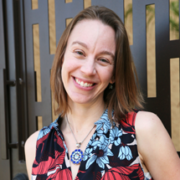
Reduced breastfeeding rates among obese women: contributing factors, clinical considerations and future directions
Jennie Bever Babendure, PhD, IBCLC - Read moreReduced breastfeeding rates among obese women: contributing factors, clinical considerations and future directions
Jennie Bever Babendure, PhD, IBCLC
Dr Jennie Bever Babendure is a biologist and International Board Certified Lactation Consultant. She is co-owner of The Arizona Breastfeeding Center, a freestanding breastfeeding practice in Tempe, Arizona. Jennie also has an academic appointment in the College of Nursing and Health Innovation at Arizona State University, where she studies the interplay between social and biological issues in breastfeeding and human lactation.
Jennie received her Bachelor’s degree in Biochemistry from Arizona State University, and PhD in Biology from the University of California, San Diego. She completed UC San Diego’s Lactation Consultant Training Program and earned her IBCLC certification in 2009. Jennie and her husband have 4 beautiful children who do their best to teach her more about motherhood, lactation, and humility every day.
Reduced breastfeeding rates among obese women: contributing factors, clinical considerations and future directions
Dramatic differences exist in breastfeeding rates between countries and cultures; however there is a significant effect of maternal obesity to reduce both breastfeeding initiation and duration independent of nation of study. This presentation will summarize the existing research on potential causes of reduced breastfeeding incidence, exclusivity and duration in obese women, and present the results of the existing breastfeeding interventions in this population. To help healthcare workers put this information into practice, this presentation will also include important clinical considerations for helping obese mothers to reach their breastfeeding goals as well as clinically guided future directions for research.
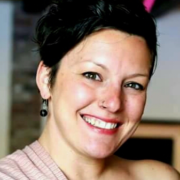
The work of Nurture Project International: pregnant and lactating women in humanitarian settings
Brooke Bauer, MPH - Read moreThe work of Nurture Project International: pregnant and lactating women in humanitarian settings
Brooke Bauer, BSc, MSc
Brooke Bauer is the founder and chief executive officer of Nurture Project International. She is a health and human rights professional with an acute interest in lactation in conflict and fragile states. Brooke holds a Masters in International Public Health from the University of Leeds (2009). Over the last ten years, she has worked on public health projects globally including health campaigns in South America, maternal health advocacy in the Middle East, mental health projects in the UK, and HIV counselling and testing and maternal health projects in Africa. Brooke received the 2017 Miriam H. Labbok Award for Excellence, given for her focus on health and human rights and her focus on a woman’s right to breastfeed around the world.
The work of Nurture Project International: pregnant and lactating women in humanitarian settings
Nurture Project International is a US based NGO that responds to the Syrian crisis by developing lactation support programs for women dispaced by war and terror. In this talk Brooke describes the need for an appropriate response, what a multisectoral response for pregnant and lactating women looks like, how to control the rampant use of formula in camp settings, and relactation successes in camp settings.
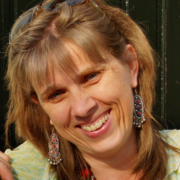
The supremacy of proximity
Marianne Vanderveen-Kolkena, BSc, IBCLC - Read moreThe supremacy of proximity
Marianne Vanderveen-Kolkena, BSc, IBCLC
Marianne Vanderveen-Kolkena is a married mother of four home-birthed, breastfed, grown-up daughters, two of whom will turn her and her husband into grandparents shortly. In 1994, she became a breastfeeding volunteer after the birth of the third with the Dutch Vereniging Borstvoeding Natuurlijk (VBN). The work was so inspiring and she saw so many challenges in the care for breastfeeding mothers, that she decided to become a lactation consultant. She started her practice in 2009 and translated three books from English into Dutch, of which Sleeping With Your Baby (by James J McKenna) and Hold Your Prem (by Jill Bergman) are examples of what she sees as the core of her work: emphasising the importance of responsivity and sensitivity in infancy and childhood for the healthy sociomoral development of the adult.
In June 2017 she finishes her bachelor Cultural Anthropology & Developmental Sociology at the University of Amsterdam, specialising in and preparing for her master’s degree in Medical Anthropology & Sociology. A topic she is now working on is the concept of adult supremacy, the idea that many mechanisms in global society are aimed at adult interests at the expense of child wellbeing.
The supremacy of proximity
As long as the baby is in the womb, the connection between mother and baby is undeniable. As soon as the little new person has come into the world, everything changes. Connection and closeness become entities that consciously need to be taken care of, despite the hormonal support both mother and baby get from their physiological states. Depending on our background and life course experiences, this can be relatively easy or something we really need to learn in that early stage, both as parents and as health care providers. Without being aware of it, we apply different forms of ‘capital’ we have acquired, competencies, knowledge and insights we developed. Our social position and power position play a role in this, as well as the way we view the connection between mind and body. As a society, how do we judge the relationship between a mother and her newborn baby, between the baby and other important others? In what way can our behaviour and our use of language support the dyadic closeness and prevent its disruption? What is the influence of the physiological aspect of proximity on the development of our personality? These and other questions will be dealt with in the presentation that Marianne will share with us.

MTHFR and tongue tie, a look at genetics and mechanics
Kendra Becker-Musante, ND, FNP, BC - Read moreMTHFR and tongue tie, a look at genetics and mechanics
Kendra Becker-Musante, ND, FNP, BC
Dr Kendra Becker is an integrated physician practicing for over 10 years; She is a “4A Specialist” (asthma, autism, allergies, atopy/eczema). She is board certified as both a ND and APRN. Her specialties include MTHFR, fertility and treatment of “the 4As” (asthma, autism, allergies, atopy/eczema). Dr Becker focuses on primarily treating the pediatric population and their parents. Dr Becker is the author of “A Delicious Way to Heal the Gut” a concise reference on gut healing.
MTHFR and tongue tie, a look at genetics and mechanics
Take a look at how genetic polymorphisms of MTHFR. Dive deep into the chromosomes and their implications on breastfeeding and oral-motor development of our babies. Learn about diagnosis and treatment as well as maintenance plans to support MTHFR mutations and Tongue/Lip ties to improve breastfeeding, speech, oral health and over all health.

The importance of community-based breastfeeding support as a continuity of care
Stacy Davis, BA, IBCLC - Read moreThe importance of community-based breastfeeding support as a continuity of care
Stacy Davis, BA, IBCLC
Stacy Davis is an International Board Certified Lactation Consultant with a Bachelors Degree in Health Services Administration and 17 years of healthcare experience, including clinical and community-based lactation support. Her specialty is organizing and managing grassroots, community-based lactation-related programs. Stacy is tirelessly dedicated to improving the level of equity, diversity and inclusion in lactation support; she wholeheartedly believes that community-based programs provide an invaluable service as a continuity of care that bridges the gap between the healthcare provider and community, offering families the socio-cultural support to birth, nourish and nurture
healthy children and communities. Currently, Davis is the Executive Director of the National Association of Professional and Peer Lactation Supporters of Color (NAPPLSC) and a lactation consultant for Ascension Health System, where she assisted two hospitals in achieving Baby-Friendly Hospital designation and mentored aspiring IBCLCs of color.
Stacy owns a private practice in her hometown of Detroit, MI, USA and resides there with her husband, Jessie, and four sons – Lawran, Devahn, Jessie, and Jace.
The importance of community-based breastfeeding support as a continuity of care
As a former breastfeeding mother of four sons, the journeys of Stacy’s first two-breastfeeding experiences were very unsuccessful. Her community offered limited to no support for breastfeeding women, particularly women of color, that was reflective of her and her child’s needs. It was not until Stacy’s third child that she connected with a community-based program that equipped her with the education, support and resources that she needed to overcome her
own insecurities and barriers to successfully breastfeed her last two children.
Community-based lactation programs, that are reflective of their community, have been proven to connect lactating families with the breastfeeding and non-breastfeeding resources and support needed to be successful; increase initiation, duration, and exclusivity; and improve the overall health of infants and mothers by reducing infant and maternal mortality rates in at-risk communities.
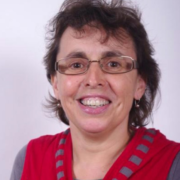
Embracing cultural diversity in New Zealand – An inside look at an innovative breastfeeding Peer Counsellor Programme
Heather Cotter, Dip Tchg (ECE), LLL Leader, PCPTC - Read moreEmbracing cultural diversity in New Zealand – An inside look at an innovative breastfeeding Peer Counsellor Programme
Heather Cotter, DipTchg (ECE)
Heather Cotter is a Breastfeeding Education Specialist and has been training health professionals and community workers in breastfeeding education for over 10 years. Heather was accredited as a La Leche League Leader in 2004, serving a three year term on the LLL National Board and believes passionately in mother-to-mother support. As a National Training Coordinator of the La Leche League Breastfeeding Peer Counsellor Programme, she has travelled throughout New Zealand facilitating this programme. She is committed to protecting, promoting and supporting breastfeeding and has held a number of breastfeeding education and advisory contracts for District Health Boards and Regional Public Health. She was instrumental in setting up and coordinating various breastfeeding networks and is still an active member of these networks.
Prior to having children, Heather worked in the education sector lecturing in Early Childhood Education at Victoria University. She lives in Wellington and is married with two gorgeous teenagers.
Embracing cultural diversity in New Zealand – An inside look at an innovative breastfeeding Peer Counsellor Programme
A woman who has successfully breastfed is a valuable asset to her community and is often highly motivated to help and support other new mothers. New Zealand is a culturally diverse society and although La Leche League has provided mother-to-mother support in New Zealand for over 50 years, few of our ethnic communities access this breastfeeding support. The La Leche League New Zealand Breastfeeding Peer Counsellor Programme uses a train-the-trainer model, to teach people from ethnic communities within New Zealand to implement breastfeeding support programmes that are culturally relevant. We have trained indigenous Maori, women from the various Pacific Nations, teen mothers and Muslim women. We have also taught women from Fiji, China, and Hong Kong who came to New Zealand to be trained as Peer Counsellor Programme Administrators. This presentation will provide an overview of this programme including examples and case studies of successful initiatives.
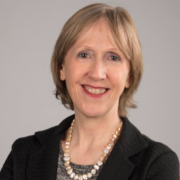
Breastfeeding for reduction of procedural pain: the evidence and utilization
Denise Harrison, RN, RM, PhD - Read moreBreastfeeding for reduction of procedural pain: the evidence and utilization
Denise Harrison,RN, RM, PhD
Dr Denise Harrison is an Associate Professor and the Chair in Nursing Care of Children, Youth and Families at the University of Ottawa and Children’s Hospital of Eastern Ontario (CHEO), Canada and the lead of the BSweet2Babies program of research. She is a registered nurse in Australia and Canada and a registered midwife in Australia. Denise’s program of research focuses on improving pain management for neonates, infants up to one year of age, and young children. She has developed videos in partnership with parents and clinicians for parents, in multiple languages, showing them how they can help clinicians to reduce their infant’s pain during newborn screening and vaccination. She is currently working on evaluating the use of social media as a method of disseminating parent-targeted information about infant pain management. Her twitter handle is: @dharrisonCHEO.
Breastfeeding for reduction of procedural pain: the evidence and utilization
Reducing pain during newborn screening, other blood sampling procedures and vaccinations is important for babies and their parents. Extensive research has shown that breastfeeding; holding babies skin-to-skin; or small volumes of sweet solutions such as sucrose or glucose, effectively reduce pain during heel lance and venipuncture. Breastfeeding and sweet solutions also effectively reduce pain up to 12 months during vaccination. However there is inconsistent use of these strategies in diverse clinical areas. This presentation will focus on the evidence to support breastfeeding for analgesia, the knowledge to practice gap, and partnering with parents in knowledge translation research to improve pain management for babies during painful procedures.
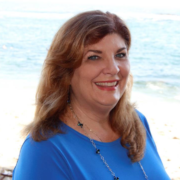
Adverse Childhood Experiences (ACEs) and their impact on breastfeeding and breastfeeding’s impact on ACEs
Colleen Weeks, CLE, LCCE, FACCE, CSE, RTS - Read moreAdverse Childhood Experiences (ACEs) and their impact on breastfeeding and breastfeeding’s impact on ACEs
Colleen Weeks, CLE, LCCE, FACCE, CSE, RTS
Confucius said “Choose a job you love, and you will never have to work a day in your life.” For more than 35 years Colleen Weeks has passionately worked with childbearing women. Colleen is a Certified Childbirth, Lactation and Sex Educator. At Kaiser Permanente in Orange County California she is the Perinatal Education manager and serves on the Family Violence Prevention Team where she piloted an ACE’s project. Colleen is also a bereaved mother and Certified Perinatal Bereavement counselor and program director where she is the leader of the Perinatal Bereavement Program. She also serves on the Baby Friendly team in the hospitals where she works and on the board of directors for the International Childbirth Education Association.
Adverse Childhood Experiences (ACEs) and their impact on breastfeeding and breastfeeding’s impact on ACEs
Every mother we serve has a story and that story impacts her pregnancy, birth, breastfeeding and mothering experience psycho-socially and physically. Childhood abuse and neglect leaves lifelong scars, while love and support creates resilience. We have a powerful opportunity to influence resilience in the mother and, in turn the newborn that will follow them throughout life. This is a “feel good” presentation based in science!

Practical clinical application of results from recent research in breastfeeding medicine
Arthur I Eidelman, MD, FABM, FAAP - Read morePractical clinical application of results from recent research in breastfeeding medicine
Arthur I Eidelman, MD, FABM, FAAP
Dr Arthur I Eidelman received his MD degree from the Albert Einstein College of Medicine and trained in Pediatrics and Neonatology at the Yale University School of Medicine. In 1978 he moved to Israel and established the first Department of Neonatology in Israel and served as the first President of the Israel Neonatal Society, as Founding Father of the Israel Board of Neonatology. Ultimately, Dr Eidelman became Chairman of the Department of Pediatrics at Shaare Zedek Medical |Center and Professor of Pediatrics at the Faculty of Heath Sciences of the Ben Gurion University of the Negev, the Hebrew University School of Medicine. Dr Eidelman has authored over 200 peer reviewed articles, monographs, and textbooks in the field of Pediatrics and Neonatology with a special emphasis on issues related to infection, breastfeeding, nutrition, infant neurobehavioral development and medical ethics. Dr Eidelman served as the International Editor of The Journal of Perinatology,( the official Journal of the Section of Perinatal Medicine of the American Academy of Pediatrics 9AAP) ,as a member of the Medical Advisory Board of La Leche League International, as past Chairman of the Policy Committee of the Section of Breastfeeding of the AAP and is a past President of the Academy of Breastfeeding Medicine (ABM). He is the lead author of the 2012 AAP Policy Statement: Breast Feeding and the Use of Human Milk. Since January 2015 he serves as the Editor in Chief of Breastfeeding Medicine, the official journal of ABM.
Practical clinical application of results from recent research in breastfeeding medicine
Five recently (2016-2017) published research studies will be reviewed and analyzed in detail. Special emphasis will be placed on the implication of the research results for immediate clinical management protocols regarding breastfeeding and the maternal infant dyad.
Subjects to be discussed will include, the unique composition of human milk, the impact of milk processing (freezing, pasteurization) storage) on the milk composition, the difference between fresh milk and donor milk, complementary food when to begin and with what, and what is the evidence for long term health benefits of feeding human milk.
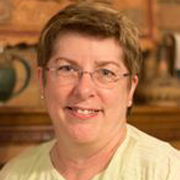
Working with child care centers to promote breastfeeding friendly practices
Cathy Carothers, BLA, IBCLC, FILCA - Read moreWorking with child care centers to promote breastfeeding friendly practices
Cathy Carothers, BLA, IBCLC, FILCA
Cathy Carothers is co-director of Every Mother, Inc a nonprofit organization providing counseling and lactation training for health professionals across the United States. She is a national expert in the field of lactation support in the workplace. She is past chair of the United States Breastfeeding Committee, and past president of the International Lactation Consultant Association. She is a Fellow of ILCA, and an International Board Certified Lactation Consultant since 1996. She was honored by the National WIC Association with their 2014 National Leadership Award.
Cathy is the author of the national HHS Maternal and Child Health Bureau project, The Business Case for Breastfeeding, and served as the national project director for the HHS Office on Women’s Health initiative, Supporting Nursing Moms at Work: Employer Solutions. She has provided more than 700 lactation-related training events and workshops in every U.S. state and territory and many countries. This includes workshops on supporting nursing moms at work in 40 states and presentations at many national business industry conferences. She has also worked with major national business organizations and the breastfeeding community to help nursing mothers make it work…at work.
Working with child care centers to promote breastfeeding friendly practices
Worldwide, new parents are returning to work in record numbers in the weeks and months following the birth of a baby. In addition to navigating worksite challenges of combining breastfeeding and employment, parents must also juggle navigating appropriate care for their infants and children through formal or informal caregiver arrangements. Wide discrepancies exist with regard to childcare provider knowledge about the importance of breastfeeding and practices that will support new families. This session addresses the impact of childcare practices on breastfeeding outcomes, ways to engage caregivers in improving support, and resources that can help build breastfeeding-friendly practices.
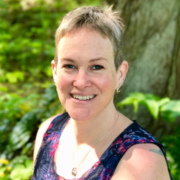
Strategies to support breastfeeding in non-traditional occupations
Robyn Roche-Paull, BSN, RNC-MNN, IBCLC - Read moreStrategies to support breastfeeding in non-traditional occupations
Robyn Roche-Paull, BSN, RNC-MNN, IBCLC
Robyn Roche-Paull, BSN, RNC-MNN, IBCLC is the award-winning author of the comprehensive book Breastfeeding in Combat Boots: A Survival Guide to the Successful Breastfeeding While Serving in the Military, and the Executive Director of the non-profit ‘Breastfeeding in Combat Boots’. She is a Registered Nurse and IBCLC (International Board Certified Lactation Consultant) as well as a US Navy Veteran who successfully breastfed her son while on active duty as an aircraft mechanic. Robyn has been working with breastfeeding mothers for over 18 years and currently works at Madigan Army Medical Center in Tacoma, Washington.
Robyn can be found lecturing at breastfeeding conferences and military bases around the United States and overseas. She maintains her website and Facebook page, writes for various blogs and magazines and helps active duty military mothers worldwide via email and Skype. Robyn lives in Graham, WA with her husband of 23 years, a Retired Chief Petty Officer of the US Navy and her 3 teen-aged children. Visit her at www.breastfeedingincombatboots.com.
Strategies to support breastfeeding in non-traditional occupations
Women in non-traditional occupations face unique challenges when breastfeeding. Many are not reaching the goals set by Healthy People 2020 and the American Academy of Pediatrics for breastfeeding due to a lack of information and support. This presentation covers the following: An overview of the available literature regarding breastfeeding in non-traditional jobs, lack of time and place for pumping, separation issues, various workplace environments, HAZMAT issues, co-worker and male-dominated workplace issues, physical training and uniform issues, and workplace support.
This presentation will offer strategies for use by lactation professionals when working with breastfeeding mothers to include: a) education of supervisors and co-workers, b) implementation of breastfeeding instructions and policies, c) pumping skills and strategies to maximize production, d) separation issues, e) hazardous materials exposure, f) uniforms and physical training, g) support from family and spouse, support groups, lactation consultants.
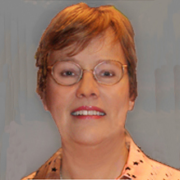
Milk expression: benefit or concern (part 1)
Genevieve Becker, Dip Dietetics, MSc, MEd, PhD, IBCLC, FILCA - Read moreMilk expression: benefit or concern (part 1)
Genevieve Becker, Dip Dietetics, MSc, MEd, PhD, IBCLC, FILCA
Dr Genevieve Becker, is a dietitian and International Board Certified Lactation Consultant who has worked in maternal, infant and young child feeding for over 35 years. Her main interests are the education and performance of health workers in breastfeeding supportive practices and breastfeeding research methodology. She has earned a Masters of Science (Community Health), a Masters in Education and a PhD, which examined assessment of health worker performance in assisting mothers to learn skills related to breastfeeding. Genevieve was awarded a Health Research Board (Ireland) Fellowship to produce a Cochrane systematic review on methods of milk expression, and keeps it up-to-date as a volunteer. She is the first (and as yet the only) European recognised as Fellow of the International Lactation Consultant Association, and served as an ILCA/WABA Chris Mulford Fellow. Genevieve was a volunteer counsellor with a mother-to-mother support group for 20 years.
Her business BEST Services provides consultancy services related to breastfeeding education, support and training nationally and internationally. Some current contracts include the coordination of the Baby Friendly Health Initiative in Ireland, assisting countries to revitalise their BFHI activities, and development of standards and assessment tools for breastfeeding supportive community health services from antenatal to two years of age. She has two adult children, three grandchildren and lives in Galway city on the west coast of Ireland.
Milk expression: benefit or concern (part 1)
Why do mothers express/pump their milk? Who benefits? What is the research evidence for methods of milk expression/pumping? Is one method the “best”? Are there concerns about milk expression and pumping? Does what works “best” depend on who is asked what questions? Do parents and health workers receive independent research information or company funded product marketing information? Are there research gaps?

Milk expression: benefit or concern (part 2) - sustainability considerations
Yvonne Ryan-Fogarty, PhD - Read moreMilk expression: benefit or concern (part 2) - sustainability considerations
Yvonne Ryan-Fogarty, PhD
Dr Yvonne Ryan is a Postdoctoral Researcher and Lecturer in Environmental Science at the University of Limerick, Ireland. Her research interests include environmental assessment methodologies such as industrial ecology, material flow analysis, ecological footprint, environmental impact assessments, backcasting and ecological economics. She has applied these methods on real world problems within industry, higher education campuses and healthcare facilities.
Dr Ryan’s previous work on industrial ecology led to the development of material flow analysis of over 20 enterprises, particularly technology and agri-food companies, identifying their inputs, processes and waste products. She went on to work in sustainability in higher education and was Co-Ordinator of the Green-Campus Programme in Ireland. Through this role she became involved in developing environmental education tools as well as auditing and verification methods. She was heavily involved with the implementation of environmental sustainability initiatives in Cork University Hospital. This experience sparked her interest in looking at solutions to not only manage waste more effectively in healthcare, but means to ultimately prevent environmental impact. The best way to prevent environmental impacts in hospitals is through preventative medicine, by keeping the population healthy, thereby reducing the need for hospitalisations.
Following the birth of her first son in 2012, she became interested in the World Health Organisation Code on Marketing of Breastmilk Substitutes and the role breastfeeding plays in maintaining health a healthy population and planet. She subsequently co-authored an Irish Environmental Protection Agency Funded research project on establishing the Environmental Impacts of Infant Feeding Decisions. Her second son was born in 2016.
Milk expression: benefit or concern (part 2) – sustainability considerations
This presentation analyses some of the materials used for milk pumping. Using material flow analysis techniques, environmental and economic aspects of milk pumping and expression will be discussed. Possible mitigation techniques will be outlined and examples will be presented such as disruptive technologies and practices.

Tales of hope, patience and oxytocin: supporting non-latching babies
Indira Lopez-Bassols, BA (Hons), MPP, IBCLC - Read moreTales of hope, patience and oxytocin: supporting non-latching babies
Indira Lopez-Bassols, BA (Hons), MPP, IBCLC
Indira has been involved in breastfeeding support for more than one decade. She discovered La Leche League in Mexico, her home country 20 years ago, when she had her first child. A few years later, she became an accredited La Leche League leader and she currently leads the weekly Café La Leche Merton group in London.
She has been an IBCLC for the past 5 years. She has a busy private practice that she combines with teaching. Indira ia the Director and main teaching Faculty of the Breastfeeding London Course (90 lactation specific education hours) for health care professionals and breastfeeding supporters. In addition, she worked at Kings College Hospital ‘s Tongue Tie Clinic, where she gained competence in all aspects related to anterior and posterior tongue ties, their assessment, their impact on breastfeeding, how to perform frenulotomy and breastfeeding support post procedure.
Last but not least, Indira has been a birth doula for more than a decade and she has taught Iyengar yoga for the past 16 consecutive years.
Tales of hope, patience and oxytocin: supporting non-latching babies
This presentation will present a few cases of non latching babies that have not responded to the normal tricks of the trade. We know that there are many reasons from birth interventions to anatomical abnormalities that can make it difficult for babies to latch. And the more reasons we tick, the more complex it can get.
As IBCLCs, we also know that babies learn to breastfeed by breastfeeding or said differently by “association”. Non latching babies need to re-wire their brains to make this simple connection: breast = restaurant.
All the clinical cases presented have a mixture of 3 ingredients: hope, meaning keeping the mother’s optimism high, an oxytocin boosting environment so both mother and baby stay calm and relaxed and lots of creativity/thinking outside the box on behalf of the IBCLC.

Breastfeeding self-efficacy in the millennial age
Diana West, BA, IBCLC - Read moreBreastfeeding self-efficacy in the millennial age
Diana West, BA, IBCLC
Diana West is an IBCLC, a La Leche League Leader, and Director of Media Relations for La Leche League International. Diana is the co-author of Sweet Sleep: Nighttime and Naptime Strategies for the Breastfeeding Family, the 8th edition of The Womanly Art of Breastfeeding, The Breastfeeding Mother’s Guide to Making More Milk, Breastfeeding after Breast and Nipple Procedures, and ILCA’s Clinician’s Breastfeeding Triage Tool. She authored the groundbreaking book, Defining Your Own Success: Breastfeeding after Breast Reduction Surgery. She has also recently published a research article with a team led by Trevor MacDonald and Joy Noel-Weiss about trans men’s experiences with lactation and gender identity.
Breastfeeding self-efficacy in the millennial age
Methods to help today’s generation of mothers feel more comfortable with their breasts in order to improve breastfeeding self-efficacy. Includes overview of historical perspective and breastfeeding self-efficacy research.

Nipple variations and implications during lactation
Diana West, BA, IBCLC - Read moreNipple variations and implications during lactation
Diana West, BA, IBCLC
Diana West is an IBCLC, a La Leche League Leader, and Director of Media Relations for La Leche League International. Diana is the co-author of Sweet Sleep: Nighttime and Naptime Strategies for the Breastfeeding Family, the 8th edition of The Womanly Art of Breastfeeding, The Breastfeeding Mother’s Guide to Making More Milk, Breastfeeding after Breast and Nipple Procedures, and ILCA’s Clinician’s Breastfeeding Triage Tool. She authored the groundbreaking book, Defining Your Own Success: Breastfeeding after Breast Reduction Surgery. She has also recently published a research article with a team led by Trevor MacDonald and Joy Noel-Weiss about trans men’s experiences with lactation and gender identity.
Nipple variations and implications during lactation
This presentation of vivid (and often graphic!) photos of nipples contributed by colleagues around the world explores normal and potentially problematic anatomical nipple variations, nipple surgeries, conditions, and their effects on milk production, milk removal, and direct breastfeeding.
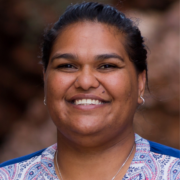
Breast IS Best- a midwife’s perspective on Aboriginal breastfeeding mothers in Central Australia
Cherisse Buzzacott, RM - Read moreBreast IS Best- a midwife’s perspective on Aboriginal breastfeeding mothers in Central Australia
Cherisse Buzzacott, RM
Cherisse Buzzacott is a young Arrernte Aboriginal woman and Registered Midwife working at the Alice Springs Hospital. She also works as an outreach Midwife travelling to a large community in Central Australia. She has spoken at multiple conferences addressing my work as a Midwife, with the honour of being asked to speak at LCANZ in Melbourne 2016 detailing the journey of Aboriginal Breastfeeding mothers. She has presented on community and national levels about her passage to becoming a Midwife and her concerns for Aboriginal Maternal and Neonatal health. This was an opportunity that came from being recognised for her work at the local Aboriginal Women’s clinic and now at the Alice Springs Hospital. She is a supporter of developing midwives and assisting students and new graduates into the workforce through mentoring and tutoring through Universities.
Cherisse works as a Midwife foremost but is also accessed as a cultural advisor, as she has knowledge about the local area and her own cultural knowledge from growing up with strong culture and lore. There are certain sensitivities that need to take place in everyday interactions with Aboriginal women and families which can often be complicated by English being a second and third language for most remote women. This is where her role has been pivotal when addressing concerns for mother and baby, especially when it comes to breastfeeding and allowing mothers to have a better understanding of what is needed to ensure that they both have a long and healthy life.
Breast IS Best- a midwife’s perspective on Aboriginal breastfeeding mothers in Central Australia
This presentation is a cultural experience detailing the breastfeeding journey of Aboriginal women in remote areas of Central Australia. It details the experiences of a midwife working in a remote setting, seeing the successes and downfalls of Aboriginal breastfeeding mothers and the work of midwives. Additionally it shares a positive outlook on breastfeeding which can sometimes hinder a woman’s feeling towards and understanding of being a new mother. From my experience Aboriginal women know ‘Breast is Best’ and do it the better than what we the professionals can teach them.

Avoiding conflict of interest in the area of infant and young child feeding
David Clark, JD - Read moreAvoiding conflict of interest in the area of infant and young child feeding
David Clark, JD
David Clark is an international lawyer working with the Nutrition Section, UNICEF, New York. Prior to that David worked for the United Nations Interregional Crime and Justice Research Institute in Rome, Italy. A native of Scotland, he began his career as an attorney with the Scottish Development Agency. Since 1995, David has assisted more than 60 countries in drafting legislation to implement the International Code of Marketing of Breastmilk Substitutes, and has been instrumental in bringing a human-rights based approach to the protection, promotion and support of breastfeeding. He has contributed to the development of international policy guidelines in the area of HIV and infant feeding and infant feeding in emergencies, and has provided guidance on issues around international trade agreements and intellectual property rights.
David has written and contributed to many articles and publications on health and nutrition policy, developed courses and training materials on the implementation of the International Code and maternity protection and has facilitated numerous workshops on the issue.
Avoiding conflict of interest in the area of infant and young child feeding
This talk will explain briefly the concept of conflict of interest, and how health professionals have been used in the past to promote the interests of commercial companies over those of their clients. It will explain how the World Health Assembly has gradually clarified the nature of conflict of interest in the context of IYCF and has recently provided helpful guidance that can assist health workers in avoiding conflict of interest.
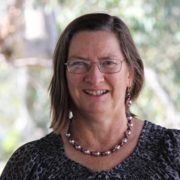
Valuing women’s lactation work
Julie Smith, PhD, BEc, BA - Read moreValuing women’s lactation work
Julie Smith, PhD, BEc, BA
Dr Julie Smith obtained PhD in Economics at the Australian National University in 2003, and has been awarded ARC Post-Doctoral and Future Fellowships for her research on the economics of breastfeeding and markets in mothers’ milk. She is currently an Associate Professor in the Menzies Centre for Health Policy at the ANU College of Asia and the Pacific.
Dr Smith has led innovative feminist economic research on breastfeeding, including on measuring its maternal time costs, as well as its economic benefits including its health system savings and contribution to GDP. She led a 3 year Australian collaborative study on best practice support in workplaces and childcare services, and initiated novel and influential studies on global milk formula sales and industry marketing activities in Australia.
A former government policy advisor, she has experience as a technical expert for the World Health Organisation (WHO) in 2007, the US Department of Health and Human Services (2009), UNICEF UK (2012), International Baby Food Action Network (2014), and the World Alliance for Breastfeeding Action (2015). She led a 2015 consultancy for WHO on baby food marketing.
Also involved as a volunteer breastfeeding counsellor and community educator with the Australian Breastfeeding Association for over twenty years, Dr Smith led advocacy including on its Australian Breastfeeding Leadership Plan in 2004, and was a board director and national treasurer during 2002-2011.
She has served as a member of the ILCA research committee, and as an editorial board member for the International Breastfeeding Journal, and reviews manuscripts such as for the WHO Bulletin, Journal of Human Lactation, Feminist Economics and BMC Pregnancy and Childbirth.
Valuing women’s lactation work
Breastfeeding may be priceless but it is not free. Better recognition of its economic value and understanding of its costs helps policy advocacy for better breastfeeding support. One way of valuing women’s lactation work is to look at what it is bought and sold for such as on the internet or by milk banks. An Indian company has plans for exporting human milk to Australia. These emerging markets in mothers’ milk raise complex issues, but strengthen the case for including the value of breastmilk in GDP.
Another way of valuing breastfeeding is to consider the time it takes to breastfeed. Exclusive breastfeeding to 6 months requires a substantial time investment. A new study using data from the Australian Time Use Survey of New Mothers explores important links between breastfeeding and maternal time investments in children. This time use research also highlights important new economic data on how much countries such as in Asia, North America, Europe and Australia are losing from failing to invest in policies to protect optimal breastfeeding.
In this presentation you will learn more about how much time mothers invest in breastfeeding and nurturing their infants, as well as how this fits into the broader picture of the economics and cost-benefits of breastfeeding.

Global action towards nutrition improvement: progress, challenges and recommendations
Roger Mathisen, MSc, RD - Read moreGlobal action towards nutrition improvement: progress, challenges and recommendations
Roger Mathisen, MSc, RD
Roger Mathisen is an international nutritionist with more than 18 years of experience working in non-governmental organizations, the United Nations, academic institutions and the private sector. At Alive & Thrive, he provides program and technical leadership, management, and coordination of Alive &Thrive activities in Cambodia, Indonesia, Lao PDR, Myanmar, Thailand, Viet Nam, and the Philippines. Before joining Alive &Thrive, Roger worked as a nutrition specialist for UNICEF in Malawi and Viet Nam from 2004-2014, and provided technical capacity and emergency support in Ethiopia, Zimbabwe, Sri Lanka, Myanmar, and the Philippines. He has a Master of Science in Clinical Nutrition from the University of Oslo and continuing education from University of Ulster, Harvard Business Publishing and the London School of Hygiene and Tropical Medicine in Applied Nutrition, Research Design, Organizational Management and Health Policy and Financing. Roger is based in Hanoi, Viet Nam.
Global action towards nutrition improvement: progress, challenges and recommendations
In this presentation, Roger Mathisen from Alive & Thrive will guide you through global policy actions to improve nutrition since the Comprehensive Implementation Plan on Maternal, Infant and Young Child Nutrition was endorsed by the 65th World Health Assembly in 2012. You will be updated on key events, and evidence generated the last 5 years leading to increased commitments to nutrition by governments and development partners. You will also learn more about some of the challenges identified and currently hindering progress to reach the World Health Assembly targets by 2025 and related Sustainable Development Goals by 2030. The presenter will also summarize some specific recommendations from the Global Nutrition Report to accelerate progress towards the global targets as we enter the United Nations Decade of Action for Nutrition.

Supporting breastfeeding mothers with perinatal mood disorders
Amanda Donnet, BPsych, BAppSci(Maths), BSci(Hons), MClinPsych, MAPS - Read moreSupporting breastfeeding mothers with perinatal mood disorders
Amanda Donnet, BPsych, BAppSci(Maths), BSci(Hons), MClinPsych, MAPS
Amanda Donnet is a registered psychologist and the owner and director of Mothers, Milk & Mental Health, where she shares her passion about breastfeeding, mental health and supporting mothers and their families through the challenges of early parenting.
In her private practice work, Amanda predominantly works with women and their families experiencing depression, anxiety, or adjustment difficulties during pregnancy and the postnatal period. Amanda also assists mothers or fathers experiencing parenting difficulties, including sleep difficulties, bonding or attachment issues. She has also completed additional training in breastfeeding education, diagnosis and management of feeding disorders and managing unsettled and distressed babies.
Supporting breastfeeding mothers with perinatal mood disorders
Should a breastfeeding mother with perinatal depression or anxiety (PNDA) be encouraged to wean? What are the assumptions that underlie this question? And what are the factors that influence the answer?
One in five Australian mothers experience mental health difficulties in the perinatal period. There are many myths and misconceptions that abound, both in the general public and among health professionals, about the relationship between breastfeeding and PNDA.
This presentation will aim to detangle the facts from the fiction, and provide guidance for how we can better support mothers with perinatal mental health concerns through their breastfeeding journeys.


